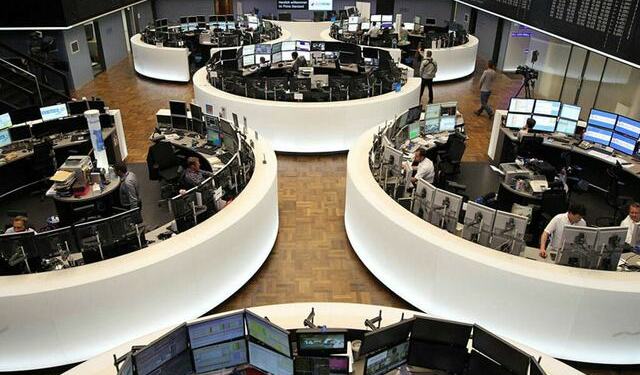LONDON The euro and Germany’s stock market managed to eke out gains Monday despite the country’s collapse of talks to form a new government.
Around 1030 GMT, Frankfurt’s DAX 30 index was up 0.2 percent after opening down by a similar amount, while the European single currency edged up to $1.1793.
“Early losses across the likes of Germany’s DAX index and euro/dollar have been largely erased, but the prospect of another election in Europe’s biggest economy could see political uncertainty weighing on the euro going forward,” said Joshua Mahony, market analyst at IG trading group.
Germany could now be set for a snap general election with no fresh viable coalition in sight.
Merkel in September won her fourth national poll victory, but bled more than one million votes to the far-right AfD, plunging her own party into weeks-long coalition talks that have now failed.
“In case there will be new elections there is a good chance that Merkel might get a better result especially as the Germany economy has been booming since the election back in September,” said Markus Huber, a trader at City of London Markets.
The leader of the pro-business FDP, Christian Lindner, walked out of talks, saying there was no “basis of trust” to forge a government with Merkel’s conservative alliance the CDU-CSU and the ecologist Greens.
There are fears the country could be gripped by months of paralysis with a lame-duck government, while Merkel’s political future has also been called into question.
Elsewhere Monday, several Asian stock markets tracked Friday’s sell-off on Wall Street, where all three main indices finished in the red on profit-taking and fears that US lawmakers would struggle to pass President Donald Trump’s tax-cutting plans.
While the House of Representatives approved its version of the reform legislation and a key Senate panel cleared a different version, the Republicans’ wafer-thin majority in the Senate mean they will have a tough fight to clear the upper chamber.
Oil prices fell back after rallying almost $1.50 on Friday when Saudi Arabia’s energy minister Khaled al-Faleh said he remained committed to an OPEC deal to limit production.
Oil prices have risen in recent months, after both the Organization of Petroleum Exporting Countries and non-OPEC countries struck a landmark deal in late 2016 to cut crude production in an effort to combat a global supply glut.
Source: Brecorder.com



























